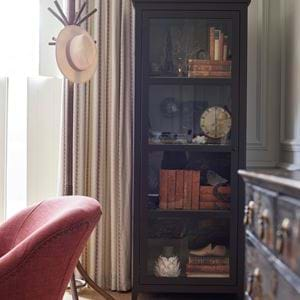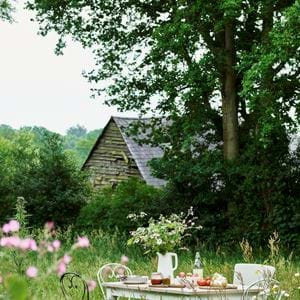Sourcing stories: Clifton Coffee Roasters
Sourcing stories: Clifton Coffee Roasters
Whenever you pop into our café at Neptune Bath – The Provenist – and order a cup of coffee, you’ll know exactly who’s responsible for the beans and perfecting their brewing. Sourced by local specialists Clifton Coffee Roasters, they work directly with the farmers to make sure they get above Fairtrade pricing and their approach is ethical and sustainable. Here, its director (and former barista), Edmund talks to us about the people and the philosophy behind his Bristol-based brand.
Can you remember the moment that Clifton Coffee Roasters came into being?
“It was actually set up by somebody called James, who’s a fantastic engineer and a good friend of mine. He’d been working at another coffee company, but very much wanted to do his own thing. Two of our other friends managed to push him into taking the plunge and he began a coffee servicing business to put his engineering skills into good practice. I then joined him not long after university to bring the brewing knowledge to the table and we turned into a two-man band, driving around the country together to try to help businesses bring better coffee to their customers.”
If you had to sum up what makes your brand different, what would you say?
“There’s plenty of fantastic coffee out there that’s sourced ethically and that tastes sublime. But we felt was that there wasn’t anybody doing both the coffee and the service side really well, because beans alone do not make a good cup of coffee. So, we joined the coffee scene to do both of those things – find top beans and then show you how to get the best out of them too. We’re obsessed with every detail from farm to cup, and that obsession drives quality and keeps us at the top in the coffee business.”
Do you feel like a lot has changed for Clifton Coffee Roasters over the last 18 years?
“In a lot of ways yes, absolutely. We started off by offering coffee servicing where we’d use our engineering backgrounds to make sure coffee brewing and roasting machinery was running as it should be. Then we started selling Italian coffee beans to provide people with coffee and to service their kit so they could make it taste as great as it could. And now, we still do all of that, but we also work with single estate farms to find specialty coffee beans that our roaster, Tim, roasts here in Bristol. Our values that we started with haven’t changed though, other than that they’ve become even more ingrained and entrenched in what we do, but what we can offer to our customers has definitely diversified.”
What do you feel coffee houses often get right and wrong?
“There’s a lot that coffee shops, restaurants and hotels get right, like choosing the right equipment and beans, but I’d say the biggest thing they get right is the attitude towards coffee. We’re really progressive in Britain and people are very much turned on to the coffee scene. When I started, we used to look up to the Italians, but today, we’re getting a lot right and pushing things forward on our home turf. The thing that I’d say people tend to get wrong is going overboard in the coffee preparation side of things. There’s a tendency to take things too seriously and to take too long with every step. Suddenly, you’ve waited 15 minutes for your coffee to arrive. The modern barista likes everything tidy and precise. They’ll do one drink at a time, weigh things out and so on, which is great and shows respect and dedication to making a good cup, but it just needs to be reined in a bit.”
Have you got a personal favourite bean?
“You can’t go too far wrong with good Colombian coffee, and Kenyan coffees are even more special. I avoid naturally processed coffees, especially on a Monday morning! Most of all I like the variety out there and would never want to be tied to one particular coffee. I suppose there’s a general type of coffee that I like – washed Colombian blends. Most of the coffee from a single country comes from Brazil; it’s the base to so many blends. When it’s done right, it tastes sweet, clean and balanced. But if someone came to me and said this is the best washed Colombian coffee you’ll ever taste but you can only drink this for the rest of your life, I’d say, no thanks. Why? Because my favourite coffee experience is having variety. I want to be able to explore different origins, different blends and different processes to appreciate their differences and to find new favourites.”
Share one of the stories of how you came across one of your growers – how did you find them and what was it about their setup that resonated with you?
At this point, Edmund suggested we speak to Sam, who’s their green-bean buyer. He told us: “That’s a big question, but the relationship that I hold closest to my heart is the one with the Arhauco tribe in north-east Colombia. I’d found out about a group called Café Anei which is a non-profit indigenous rights organisation run by a lady called Aurora Izquierdo. She was the first woman in the history of the Arhauco tribe to get a degree. At 18 years old, she travelled on her own to Bogota from the highlands of the Sierra Nevada de Santa Marta to complete a degree in Agricultural Engineering, as well as Biology, Chemistry and Agroecology, and then returned home to set up her organisation. Her culture is very traditional and so the whole thing had to be signed off by the tribal chiefs (Mamos). Today, they work with more than 3,000 farmers. The average farm is small and remote; you generally travel six hours off-road and then four hours hiking in the mountains. They’ll seldom have electricity or running water, so it’s somewhat of a challenging place to operate. Through her, we’ve found so many new growers and it’s incredible to see that we’re actively contributing to an impoverished community in need of support. So many of our growers from around the world are doing fantastic things, be it ecological protection or workers’ rights development, but this, for me, feels like a really fantastic cause to support.”
What measures have you put in place to ensure your coffee supports your growers?
“The way we buy coffee isn’t the usual route. We’re part of the specialty coffee market where we find the farmer and buy direct from them. It means we’re less focused on the market and can offer a stable, sustainable setup. The market’s been going down and down, and right now, it’s below the cost of production, which has left many farmers struggling. But it’s something that doesn’t affect our growers. We can give them stability in price.”
Can you reveal any of your brewing secrets? What is it that truly makes a good cup of coffee?
“The more complicated the brewing, the harder it is to get it right. If I had to say one thing, it’d be invest in a grinder. The fresher the beans, the better. And remember, your coffee is only ever going to be as good as its beans. Buying an expensive coffee machine isn’t going to magic up a great cup of coffee. And follow recipes – by that I mean the right size to grind the bean to for the brewing method, how much coffee you need and how much water. But also, don’t forget personal preference comes into it too. You need to taste, experiment and figure out what suits your palette best. It’s a bit like with any subject matter, the more you learn the less you know. Coffee is a huge world that can be overwhelming, so just grind your beans and let your taste buds guide you.”
Other than coffee, does your team have any other hidden expertise?
“Over the last 18 years, we’ve gradually built relationships with other specialists that complement our coffee offering. Generally speaking, we cover the broad spectrum of what a café might need. So, our turmeric lattes, hot chocolates, chai and matcha blends, for example, are all the result of a longstanding, trusted relationship we have with that supplier. We don’t bring anything under our umbrella that isn’t highly and personally endorsed.”
If you had to say where you’d hope to be in ten years’ time, what would you say?
“We’ve never really had a proper plan. We just want to be the best coffee roasters out there and to figure out what’s the best way of doing that. So far, we’re finding it’s a combination of building a highly-talented team, investing in the best equipment, building our serving and distribution network and doing the right thing by our growers. We’ve got somewhere to call home right now and there’s room for us to grow into it, and then let’s see what happens after that and where the next stage takes us…”
Try the brewed beans from the team at Clifton Coffee Roasters whenever you stop by The Provenist.
Where to find us












